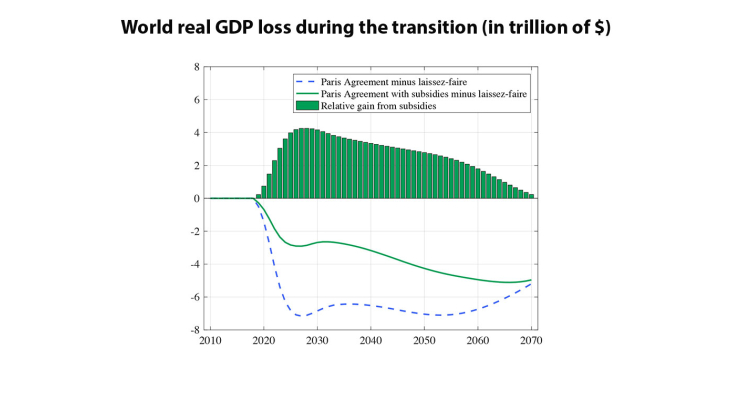Working paper n°910. We explore the role of public subsidies in mitigating the transition costs associated with achieving a climate-neutral objective by 2060. To this end, we develop and estimate a quantitative macro-climate model for the world economy featuring an endogenous market structure for carbon abatement products. Public subsidies, fully financed by a carbon tax, are found to be an efficient instrument to promote firm entry into the abatement good sector by fostering competition and lowering the selling price of such products. We estimate that the subsidy, optimally distributed between startups at 60% and existing companies at 40%, would save nearly $2.9 trillion in world GDP each year by 2060. Finally, delaying the net-zero transition would require giving an even larger share to startups.
Banque de France - Menu Principal
Press Enter to search. Example: financial stability
